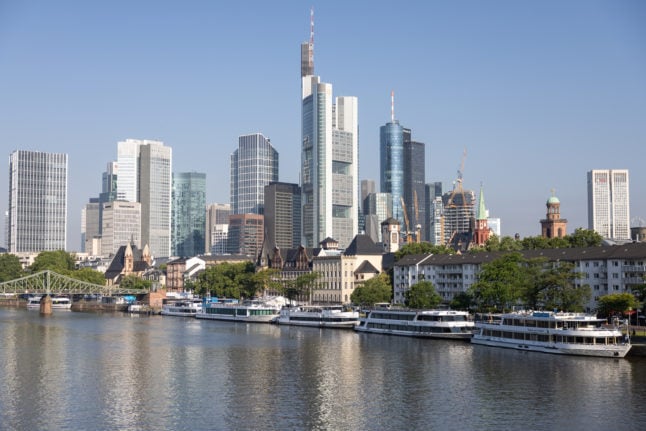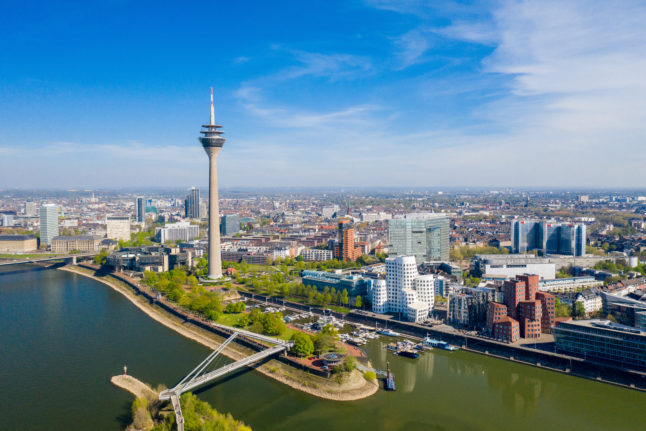When learning a new language, there’s no better way to improve than to by immersing yourself in the culture and chatting with native speakers. That means that places with huge expat communities can be great places to pick up another language or brush up your skills.
So, where in Germany can you find the most languages spoken – and the most opportunities to practice them?
According to a new study by language learning app Preply, Düsseldorf and Frankfurt am Main are the German cities that offer the best opportunities for language learners and foreign language speakers in the country.
The study analysed data from 16 major German cities, including the number of foreign language speakers, the number of multilingual facilities (restaurants, grocery shops, community centres, etc.) on offer and the number of language schools available in each city, as well as their average rating.
Surprisingly, Germany’s highly multicultural capital, Berlin, failed to top the list for 2022.
READ ALSO: The best ways to improve your German for free
Instead, Germany’s banking metropolis Frankfurt am Main and Germany’s fashion and media city, Düsseldorf, both came in top due to the sheer diversity of their populations and the size of their expat communities.
In particular, Frankfurt boasts not only the third highest number of foreign language speakers per capita, but also the highest number of foreign language institutions such as restaurants, community centres, and local shops.
Meanwhile, Düsseldorf achieved second place for the number of foreign-language establishments on offer and fifth place for the number of foreign-language speakers per capita.
Berlin ranks at a still respectable fourth place overall among the cultural hotspots by dint of having the fourth highest number of foreign speakers per capita. However, researchers found that there was a dearth of foreign-language businesses and facilities available to language learners.
With only 154 local institutions per 100,000 inhabitants, Berlin only makes it to 7th place in this category.
The other top 10 cultural hotspots include Munich, Stuttgart, Mainz, Potsdam, Hanover, Hamburg and Saarbrücken, while Dresden and Rostock share tenth place.
Expat communities
Though neither cities have the most foreign-language speakers per capita, Frankfurt am Main and Düsseldorf both boast some of the largest language-specific expat communities in the country.
Both are the top hotspots for three of the most-spoken foreign languages in Germany: Frankfurt is top for Italian, Turkish and Austrian-German, while Düsseldorf takes the top spot for Polish, Greek and Dutch.
Apart from the fact that both cities have the largest selection of foreign language facilities and a high number of foreign-language speakers, Frankfurt and Düsseldorf also scored highly for their impressive range of language schools.
READ ALSO: Is Frankfurt a good place for foreigners to live?

While Frankfurt offers the largest selection of language schools per capita in Germany, Düsseldorf has the third highest number. However, language schools in Düsseldorf received the most glowing reviews from students, with an average score of 4.56 points compared to Frankfurt’s 4.47.
Looking at the top three cultural hotspots per language, Stuttgart also stood out as a multicultural centre, with among the largest populations of Greek, Italian, Turkish, Romanian and Croatian speakers in the country.
Other frontrunners include Potsdam and Munich, which also boast large expat communities who speak one of the top foreign languages in Germany



 Please whitelist us to continue reading.
Please whitelist us to continue reading.
Member comments